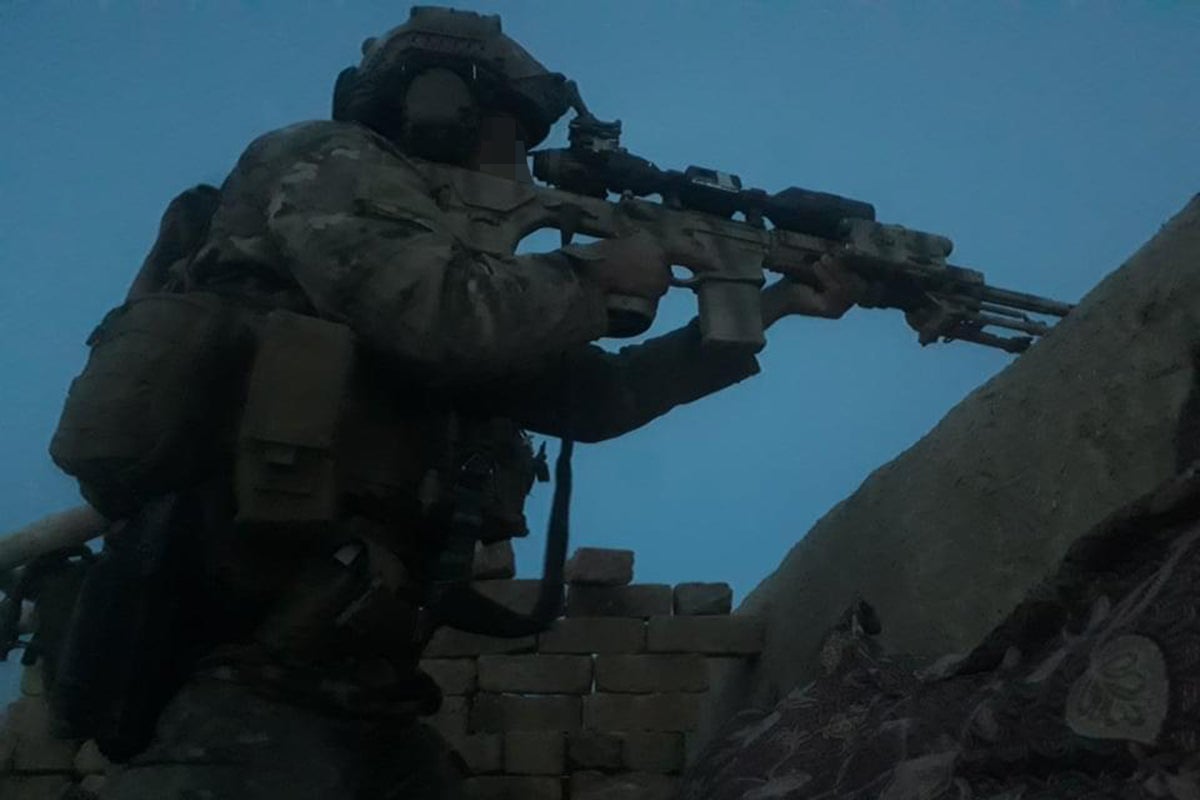
Your support helps us to tell the story
Ministers have been warned not to repeat the same mistakes over Afghan soldiers, with fears their pledge to finally relocate special forces soldiers who fought with the UK could still leave 1,500 at the mercy of the Taliban.
Campaigners and former military top brass hailed armed forces minister Luke Pollard’s announcement this week that acknowledged the troops had worked for Britain. He pledged to bring an estimated 500 to safety following a Ministry of Defence review.
But campaigners warned the decision to only grant sanctuary to 25 per cent of those affected was “absolute nonsense”.
The announcement comes after a long-running campaign by The Independent and investigative newsroom Lighthouse Reports to acknowledge the service of the soldiers in two specialist units, CF333 and ATF444, known as the Triples after we revealed dozens of cases of former commandos being tortured, disappeared or killed by the Taliban.
Despite the fact the units were set up, paid and trained by the British, soldiers from the two units had been denied relocation through the Afghan Relocations and Assistance Policy (Arap), which promises to relocate Afghans who have been directly employed by or who worked closely alongside British forces and who are at risk from the Taliban.
Mr Pollard admitted that the review had found that some of these soldiers were directly employed by the UK government, despite previous denials. The minister told MPs that some 500 applications from members of Afghan specialist units – out of 2,000 that are being reviewed – will be deemed eligible for relocation.
General Sir John McColl, the army’s former deputy supreme allied commander for Europe, praised the positive progress but stressed it was “absolutely extraordinary” that the Triples soldiers had been denied help under Arap in the first place.
He said: “We need to be clear about the extent of the cock-up – given the fact that the Triples were formed by the UK, trained by the UK, mentored by the UK and operated directly in support of UK policy and tactical and operational objectives.
“Some of these Triples have now been waiting for three years in very dangerous circumstances, and we really need to move on with this.”
Mr Pollard told MPs that the MoD estimates that 25 per cent of the applications, which are all from people with credible links to these specialist units, will be found to be eligible, though they will be assessed on a case-by-case basis.
Mr Pollard differentiated between those soldiers who were “directly employed” by the UK and those who received top-up or operational payments, based on specific missions or roles they were tasked to carry out. Under the MoD’s criteria for relocation, soldiers are still eligible to come to the UK even if they were not directly employed by the UK government.
Gen McColl warned against distinguishing between soldiers based on types of payment, saying: “The idea that it was only a top-up payment, distinct from employment, is an absolute nonsense.
“You only need to look at the Arap policy to see that if they were operating in support of UK policy objectives, and they were putting their lives at risk then they become eligible.”
Colonel Simon Diggins, a former defence attaché in Kabul, said Mr Pollard’s announcement was very positive but warned that there was a danger that the 25 per cent estimate would become a target within government – to the exclusion of other eligible Afghans.
On the payment’s distinction, he added: “The Taliban are not going to say ‘oh well we’re not going to harass this guy because he was only on top-up payments’.”
Col Diggins stressed that the same mistakes had been made over the eligibility of certain Afghan interpreters prior to 2020. He said: “It’s clear. Did they work for us? Yes. Well then they can come”.
He urged ministers to “go bold, go ugly” with the speed of the relocation. “It’s been three years since Operation Pitting. This could drag on for years if you allow it to. I absolutely believe ministers and previous ministers are acting in good faith but the process is too slow.
“We are getting daily reports of harassment, of individuals and families being attacked and harassed. There needs to be a bold cutting of the Gordian knot with this, something more direct and a desire to get this sorted quickly.”
Sarah Magill, managing director of Free From Fear, which has supported many Triples, said she welcomed the news but “the work is taking far too long”.
“We still have Triples and their families awaiting approval more than three years on. The review was already well under way when the new government assumed responsibility for it. If the issue is resourcing as well as complexity, there are avenues available to the government to bolster their teams by drawing from the private sector.”
She added that they wanted clarity on Mr Pollard’s comments about “how the Triples are being graded for acceptance”.
“Our families have provided very strong evidence of eligibility. They cannot wait any longer,” she stressed.
Professor Sara de Jong, from charity The Sulha Alliance and York University, who has been helping Afghan interpreters and others employed by the UK, warned the backlog was building for other vulnerable groups. She said: “One interpreter we support has already been waiting for 11 months for a decision on his request for a review on his application.”







